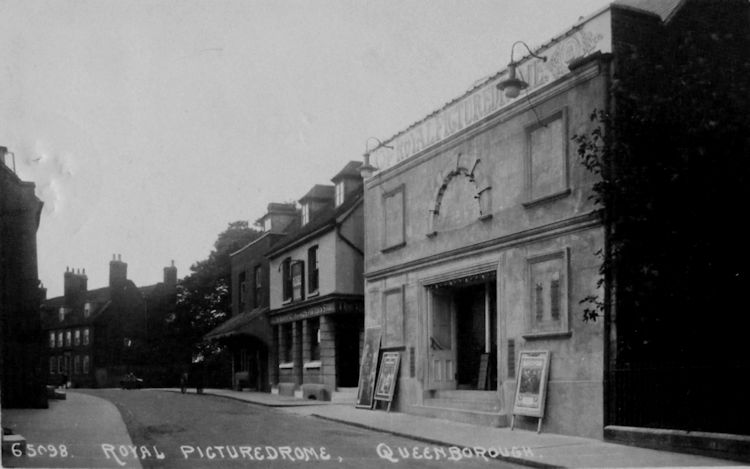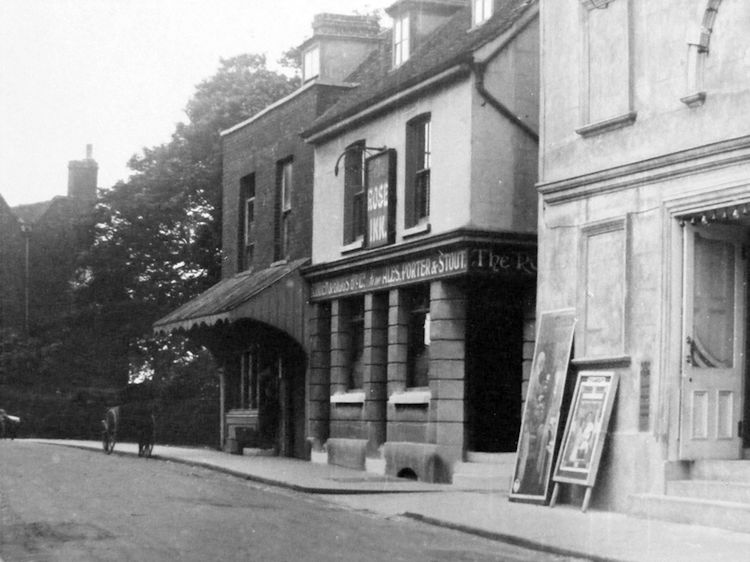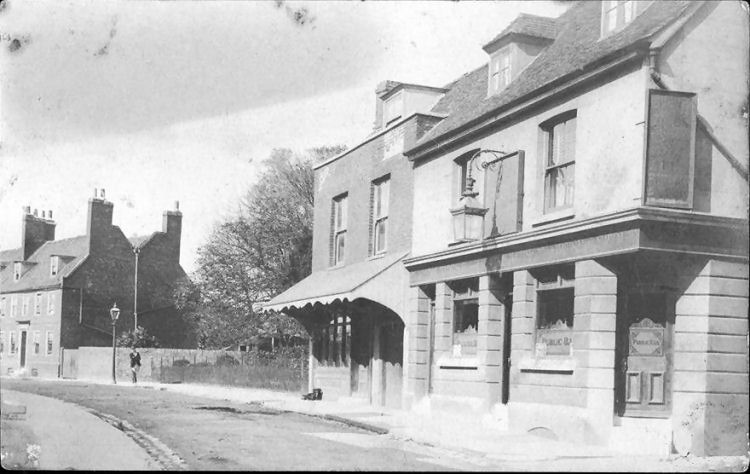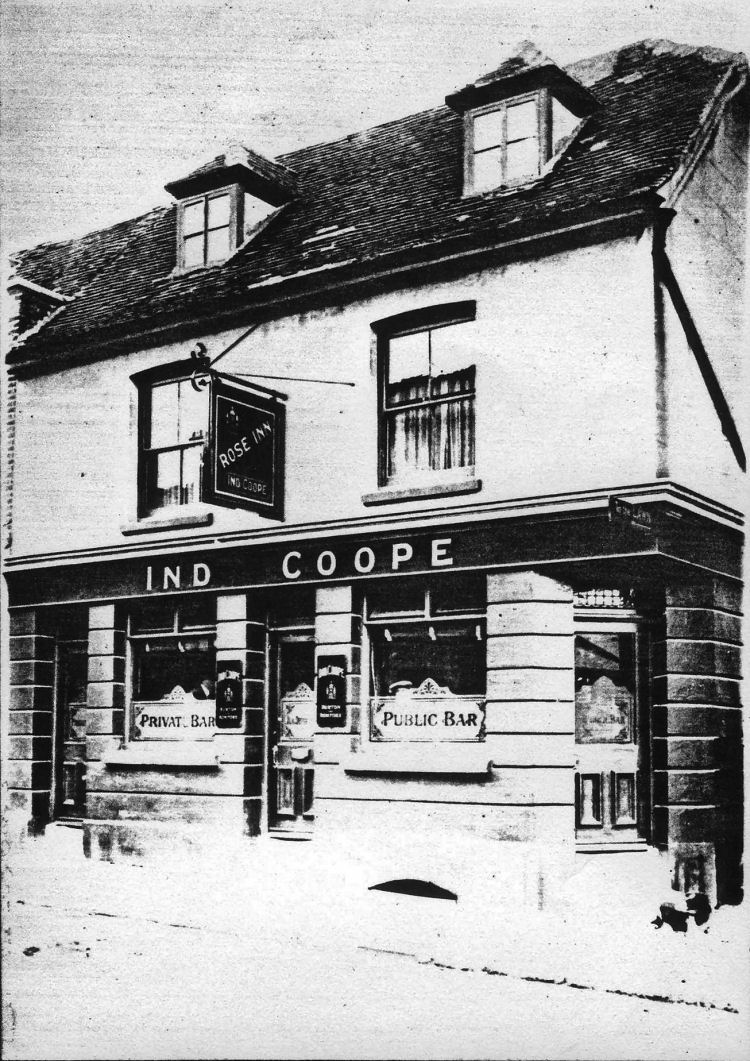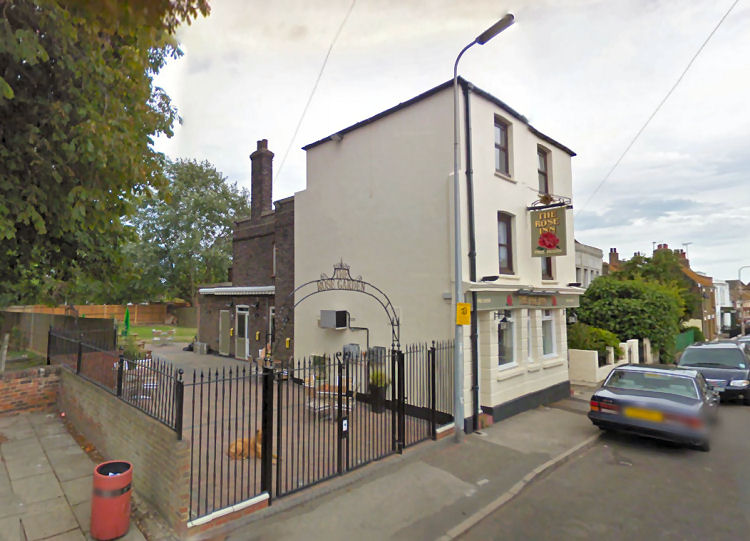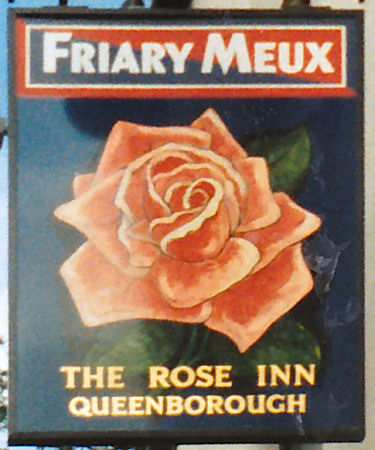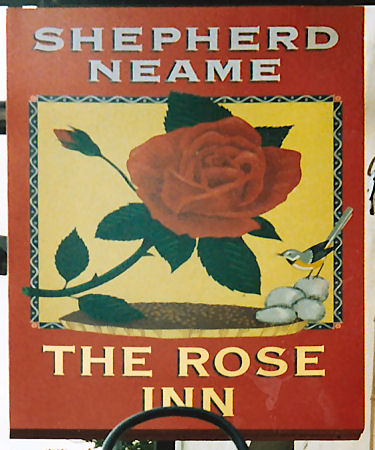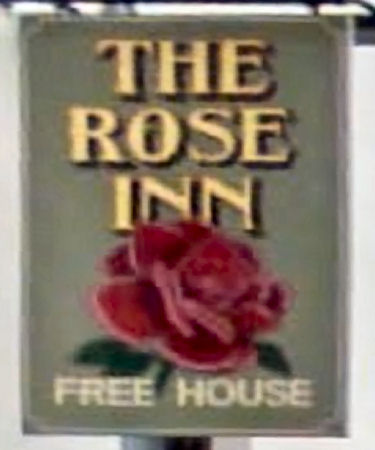|
Sheerness Guardian 15 January 1859.
DREADFUL MURDER! AT QUEENBOROUGH.
On Tuesday evening last, a most painful tragedy occurred at
Queenborough, which has created immense sensation, not only in the
town itself, but in Sheerness also, as well as in the island
generally. What renders the occurrence more tragic is that the
murderer is not 20 years of age, and his innocent victim not yet 16.
The particulars of the case may be thus summarily stated.
A young man named Frederick Prentice, has for some time been lodging
at Queenborough, having formerly been engaged as a labourer on the
Sittingbourne and Sheerness Railway; subsequently employed by Mr.
Josiah Hall, of Queenborough; and latterly by Mr. Moxon, the
contractor for the batteries, at Sheerness.
It appears that he had formed a strong and ardent attachment to a
young female of the name of Emma Coppins. The latter never seems to
have encouraged his attentions, although it is evident that she
allowed him to clean knives for her whilst she was servant at the
"Rose Inn," at Queenborough, and had subsequently accepted "nuts and
oranges" from him. Still it is quite certain, that his overtures
were never acceptable, and that latterly they had become offensive,
and that she had continually tried to evade his company. This was
more particularly apparent on Sunday last, when she "ran away and
hid herself from him," whilst he was following her, with the
apparent intention of pressing his company upon her. This conduct
appears to have irritated him, and from this moment the idea of
murder seems to have been suggested to his mind. At all events, on
Monday morning last, a razor was missing from the house in which he
lodged, and this identical razor, as will be afterwards seen, was
the destructive weapon which consummated the tragedy! Nothing further
occurred until Tuesday. On the evening of that day, Prentice was
seen by several individuals near to the Town Hall, at Queenborough,
more particularly by T. W. Fisher, at or about 25 minutes past 8.
Adjoining the Hall is an "alley" or passage leading on to
Queenborough Green; and up this alley, Prentice was seen to go. It
further appears that at or about the same hour of the evening, Emma
Coppins was in the constant habit of passing by this alley to the
"Ship" Inn, to purchase a pint of porter for her master, Mr.
Stephens. This was doubtless known to Prentice. At all events, the
young girl passed by the alley on the night in question, and within
a few minutes of the time Prentice was seen to be there. When close
to the alley, she appears to have been pounced upon, when her throat
was cut, with such precision, as to have instantly produced death,
and that almost without a struggle. Indeed but minute or two had
elapsed since parties had passed the spot; where the body was found,
and the discovery of the murder. A scream certainly seems to have
been heard, but no scuffle could have taken place, for the very jug
in which the beer had been obtained, was actually found unbroken and
with some of the beer in it. The first idea that was suggested by
the discovery of the body was, that some one had fainted, for one
witness had actually seen the woman fall, and had noticed no one
near. Other parties were in the immediate vicinity, or had been
there but moment or so before — more particularly the mail-man,
Kite. A light, however, having been obtained, the dreadful fact was
soon disclosed, that Emma Coppins had been murdered. Her throat was
cut from near the windpipe to about 4 1/2 inches backwards, and some
considerable depth. The body was warm, but the living breath had
fled, further inspection led to the discovery of man's cap and also
an open razor with blood on the blade of it — the razor we have
before alluded to. The lifeless body was removed to the home of her
aged father — an agricultural labourer with a large family.
Underdown, the town constable, immediately gave information to the
police. About 9 o'clock, Sergeant Ovenden, of Sheerness, was in
possession of the facts, and with the utmost despatch made the whole
of the force turn out. The men were located in different parts of
the district, and information was sent to Superintendent Green, of
the Faversham division, to bring up the force under his command, to
the banks of the Swale. This he promptly did, and planted men at
Harty Ferry, Elmley Ferry, and King’s Ferry. The rest of his men he
placed on the surrounding wall, so as to prevent the possibility of
the prisoner getting out of the Island without being detected. A
great number of the male population of Queenborough — like true
Englishmen — also volunteered their services to Sergeant Ovenden,
and after being divided into parties, went out to scour the fields.
It may be well to state that suspicion fell on Prentice, the moment
the murder was discovered; and that this suspicion was not long
without confirmation. The active measures that had thus been
adopted, soon led to the arrest of the prisoner. About one o’clock
on Wednesday morning, Henry Ford, P. C., 174, was proceeding from
the Half-way houses, to Mile town, when he saw the prisoner going on
before him. To make use of Ford’s own words, "I did not at first go
up to the man, because he did not answer the description with which
I was furnished. I went on about a rod and a half and stopped; I
then turned round and threw my light upon him. He said "are you a
policeman?" I replied yes. He then said "I am your prisoner, my name
is Prentice," adding "I wish some one would kill me." He then asked
me if "she was dead." Thus clearly convicting himself, if not
positively acknowledging his guilt. He shook violently at the time;
appeared terribly agitated, and was scarcely able to stand; indeed,
the policeman had to support him whilst he was being handcuffed. It
is inferred that the prisoner had very nearly been arrested at an
earlier hour, as his clothes were covered with mud from being in the
ditches, and from which he had apparently been driven by his
pursuers into the main road. We have thus far briefly narrated the
particulars of this shocking tragedy, until the time the perpetrator
was in the hands of justice, and secured in the Sheerness lock-up.
Whatever other facts have transpired, are given in the evidence
produced at the examination of the prisoner and at the Coroner's
Inquest.
EXAMINATION OF THE PRISONER.
The prisoner was brought up on the charge on Wednesday afternoon, at
the Town Hall, Queenborough, before L. S. Magnus, Esq., (Mayor) and
S. J. Breeze, Esq.; the former gentleman having been telegraphed for
from London for the occasion. The Rev. R. Bingham was also on the
bench. The Hall was densely crowded throughout the hearing of the
case, and the greatest excitement prevailed in the town.
The prisoner was brought from Sheerness in a covered phaeton in
custody of Superintendent Green, and Sergt. Ovenden, and was also
accompanied by Mr. Stride, surgeon at Sheerness. A great crowd had
assembled to witness his departure from Sheerness, as well as to
catch a glimpse of him on his arrival at Queenborough. He is a young
man, of short stature, sallow complexion and stiffly built; he has a
very fair character at Queenborough, for his steadiness and general
conduct, with the exception of his being somewhat morose in
disposition and reserved in character. It was with some difficulty
he was able to walk up the stairs of the Court and not without being
supported. He was then placed on a chair in front of the bench. He
hung his head down during the whole of the proceedings, without even
raising his eyes or uttering a word. He shook violently, sobbed
audibly and appeared to feel his guilt most acutely. The folluwing
evidence was then produced. On being asked after the deposition of
each witness whether he had anything to say, he simply shook his
head and that but faintly.
Previous to the hearing of the case, Mr. Craven, solicitor, of
Sheerness, was solicited by the Mayor and Mr. Breeze, to act on
behalf of the Town Clerk, who was absent in town. Mr. Craven
accordingly took his seat and indicted the depositions with
considerable success.
Richard Coppins deposed, I am a labourer, and father of the
deceased. I know the prisoner. I was in doors last night at
half-past eight. The deceased was then alive and in my house; she
brought a dress to wash. She had a jug with her and was going to the
"Ship Inn" for some porter. I did not see her again until after her
death. She would have been sixteen years of age in April next. I did
not see her last night after her death because my feelings would not
allow me to look at her. There was no particular intimacy between
the prisoner and my daughter; he wanted to be friendly with her, but
she did not wish to have his company. He was always running after
her; he used to watch her, but she repeatedly said she did not want
him. That is the body of my daughter that Mr. Stride examined this
morning.
William Bills, junr., landlord of the "Ship’ Inn," saw Emma Coppins
on Tuesday evening, about half-past eight o’clock. He served her
with a pint of beer, and she went away. She was in the habit of
coming to his house for porter every evening. It was about forty
rods from his house to the place where the deceased was found.
John Kite, mail-driver to Sittingbourne deposed:- I arrived at
Queenborough with the mail cart about half-past eight on Tuesday
evening and drove past the Town Hall to the Post Office, I did not
see any one then, but a minute or so afterwards while I was putting
my bag into the mail-cart I heard some one give a scream. I took my
time bill and turned my horse round to come out of Queenborough
again. My horse made a dead stop on coming up to the body of a
female on the road.
I saw a woman near, going into her house. I called out "Missus" and
told her that some one had fainted. I asked the woman to go and see.
She did so and I drove off under the impression that the body was
that of someone who had fainted.
Thomas James Underdown constable at Queenborough was called for at
half-past eight o’clock by Mrs. Knewstub. She said a woman had
fallen down in a fit. I made immediately for the spot which was
about three yards from the Court Hall Alley. I saw Emma Coppins
lying on her back. I saw that her face was covered with blood by
means of a lantern. Some other parties were there when I went up. I
felt the hand of the deceased and it was quite warm. We then lifted
her up and saw that her head fell forward and backward and perceived
that her throat was cut. I sent information to the police. A man's
cloth cap was found near to the spot, which I now produce. I
afterwards picked up an open razor about three yards from the body,
which was stained with blood on the blade. I then handed it over to
Charles Curd, P.C. 146.
Natlaniel Firman, a boy fifteen years of age, had seen a woman fall
about three yards from the Town Hall Alley, and had heard her groan,
but did not see any one near to her.
Charles Curd P.O. 146, deposed as follows:— About twenty minutes
past nine on Tuesday evening, I was informed that a murder had been
committed in the street. I immediately made haste to the spot, when
I saw the deceased being removed upon a stretcher. Several people
were there, and said that a murder had been committed, and that I
must go for assistance. I saw a cap and razor on the ground. A man
picked up the cap, and Thomas Underdown picked up a razor and gave
it to me. I kept it in my possession. Both the blade and the handle
were covered with blood. After I saw the body home, I went to see if
I could find Sergeant Ovenden at Sheerness. We both returned
together to Queenborough.
Phoebe Parker said I have known the prisoner for about 13 mouths, he
has been lodging with me. I saw him last on Tuesday afternoon about
half-past three. He was then dressed in light new corduroy trousers,
blue pilot jacket and blue jacket slop underneath; with black cloth
cap. The cap now produced is exactly like the one he used to wear. I
have heard the lodgers pass jokes upon him about a girl living at
the "Rose." The prisoner had no razor of his own but used one on
Sunday afternoon last belonging to John Colley — another lodger. I
have not seen the razor since he had it. It is not in my house now.
I have searched everywhere. I missed it on Monday morning. It was a
white handed razor and I said to the prisoner that I did not see
Colley’s razor but he made no reply. It was exactly like the one
produced, but I cannot swear to it, my husband can. The same witness
also identified the pilot jacket as belonging to the prisoner.
James Parker, a time keeper on the Sittingbourne and Sheerness
Railway, said, I know the prisoner. He has been lodging in the same
house with me for some months. I remember Sunday morning last; I
shaved with a white handed razor, and I also saw the prisoner shave
with it in the afternoon, I have not seen the razor since.
[The razor was then produced.]
That is the razor; I know it by its marks — a large gap in the
middle and a smaller one beside; also by a name on the back of it
like "Sundry," or something beginning with S. The name is on the
back of the blade. I enquired for it last night about six o'clock.
My wife said she had searched for it and could not find it. Have
seen Emma Coppins, and have often laughed at the prisoner about her.
I do not think she wanted him.
Margaret Calligan, (a young girl) saw the deceased last Sunday
evening. She asked her if she had seen Emma Edwards. She (the
deceased) said she was rather frightened as there was a man watching
her, and that she could not get away from him. The man had his back
towards them, and deceased said that was the man, but witness could
not swear the prisoner was the party as she did not see his face,
but he was dressed in blue coat, light trousers, and had a cap on.
Robert Purnell, stonemason, had known the prisoner for about 15
months. Saw him last as he was coming from the "Ordnance Arms,"
about a quarter-past eight on Tuesday evening. I was talking to a
lad outside the Town Hall. Soon after the prisoner came by and spoke
to me. He asked how I was and I enquired if he was in work still. He
said he had been discharged on Saturday but that the foreman of the
works had said he could go to work again if he liked, but he should
not. After that I turned and went up the street and he walked away
from me. I went up towards the church, he went down towards the
river. I have not seen him since until brought into court. He
appeared to be dressed in a fustian jacket, but I am sure he had
corduroy trousers and also a cap on. I did not observe anything
particular in his conversation.
George Wightman, a labourer, knew the prisoner and saw him about a
quarter past 8 opposite the Court Hall with the witness Purnell.
Purnell went away before me, and left me talking to the prisoner I
left him four or five minutes after Purnell had gone. The prisoner
went across into the Court Hall Alley.
Thomas William Fisher, mariner saw the prisoner on Tuesday evening.
He was leaning against one of the pillars of the Court Hall. It was
then 25 minutes past 8. I was going home. It took me about a minute
to walk home. I stayed in the house two or three minutes. I heard a
scream like a woman’s voice. On hearing the scream I went out. A
neighbour said some one was in a fit. I ran down the street and
found the deceased. Witness also confirmed other particulars of the
evidence already given.
Henry Ford, P. C. 174, of Sheerness, said about half-past nine.
Sergeant Ovenden came to my house and from the information I
received I went specially in search of the prisoner. I did not know
him, but had a written description of him. About one o’clock this
(Wednesday) morning. I was going from the "Half-way house" towards
Mile Town, Sheerness; and when about half-way between the two places
I saw a man going on before me. He was on the opposite side, and was
dressed in a blue reefing jacket, had a handkerchief on his head,
and wore corduroy trousers. When I got up to him and was opposite to
him, I turned my light upon him, but he did not answer the
description with which I was furnished I did not go across to him at
first; but I afterwards did. The description I had was, that he was
dressed in white smock frock, with blue work round the wristbands
and collar. I went on for about a rod and a half, and I then
stopped, and thought that I would go and look at the man more
minutely, and see who he was. I did so and again turned my light
upon him. He said, "are you a policeman?" I replied yes. He then
said, "I am your prisoner; my name is Prentice." I knew then that he
was the party I was looking for. He said, "I wish some one would
kill me." He afterwards asked me, if she was dead." He did not say
who. I replied that I had not seen her. I then took him in my
custody, to Sheerness lock-up. I found marks of blood upon his
trousers and also marks of blood upon the back of his right hand.
The pilot jacket I produce, has marks of blood on the sleeve. (Mrs.
Parker, identified the jacket, as belonging to the prisoner).
Edward Stride, surgeon, of Sheerness, deposed that he had examined
the body of deceased, and that she had died from hemonhage, caused
by an incised wound in an horizontal position, extending from near
the windpipe to about 4 1/2 inches backwards. The wound must have
been inflicted by a sharp instrument across the throat. It would
cause instant death. He had seen the prisoner and examined his right
hand and found blood upon it. There had been a good deal. He also
deposed to finding blood on the prisoner’s trousers and jacket.
Witness in answer to an enquiry from the bench, also deposed to
accompanying the prisoner from Sheerness and that he was merely
suffering from extreme grief. He had asked the prisoner if he was
hungry, and he had shaken his head to signify no. He had asked him
if he was cold, when he shook his head in the same manner. He
considered that the prisoner had heard the whole of the examination
of the witnesses.
At this stage of the proceedings, the Court adjourned until
half-past eight, in order to afford time for correcting and
preparing the respective depositions for the signature of the
witnesses. This being done the Court was reopened the prisoner was
then asked if he had any thing to say in reply to the charge and
signified through Mr. Stride surgeon, that he had not. He was then
convicted of the charge of Wilful Murder, and ordered to be
committed to take his trial for the same at the next Maidstone
Assizes. The prisoner was then removed to the lock-up at Sheerness,
until the holding of the Coroner’s inquest.
The proceedings commenced about three o'clock, and it was nearly ten
o’clock before they were concluded.
THE CORONER'S INQUEST
Was held on Thursday morning, at 10 o'clock, at the "Ship Inn,"
before T. Hills Esq, and the following jury:— The Rev. H Bingham,
(foreman), Messrs. Josiah Hall, Ebenezer Absale, Thomas Moss,
Charles Hall, William Videon, R. B. Cole, William Cole, Thomas
Brightman, Edward Champion, Thomas Underdown, William Dodd, and
William Rice.
The greater part of the evidence produced on the preceding evening,
was recapitulated and on examination of the various witnesses, the
following additional facts were elicited, namely, that when the
deceased was found, she was lying in a pool of blood, and that the
jug was standing near to her unbroken, and a portion of the beer in
it; P. C. Ford, also further deposed, "when I encountered the
prisoner he had both his hands in his pockets. I told him to take
them out. He replied, I shall not hurt you. I said, no, you don't
seem in a fit state to hurt any one. He was trembling with
agitation; so much so that I was obliged to hold him up and support
him, whilst I was handcuffing him."
The following additional witnesses were then heard:—
George Jenkins, landlord of the "Rose Inn," at Queenborough, stated
that the departed had some few months ago, lived with him as
servant; that the prisoner had been accustomed to frequent his
house, ever since he had been at Queenborough, but more especially
during the time the deceased was in his employ; also, that they
seemed on friendly terms and that on one occasion the prisoner had
assisted to clean knives for the deceased. He knew of no further
intimacy.
Emma Edwards (a young girl and a companion of the deceased) deposed
that she knew Emma Coppins well and that on Sunday evening they were
at chapel together They afterwards went down the street; they saw
the prisoner standing at the door of his lodgings. He followed them;
they crossed the road and he continued to follow them. The deceased
then ran away and hid herself. Before this, the deceased had told
witness that she didn't want the prisoner. No conversation took
place between them on this occasion, but on a previous occasion, she
had seen the prisoner give the deceased some nuts and two oranges.
These were the only additional depositions that were made. The
prisoner, as on the preceding day, preserved the same sullen
demeanour, refusing either to ask any questions or to answer any,
except by movements of the head. Mr. Stride, however, stated that he
was perfectly sensible of the proceedings, and could have replied if
he felt willing.
The Coroner having read the respective evidence, then called upon
the prisoner to say anything he wished to say, giving him the usual
charge, that what he might state would be produced in evidence
against him. The prisoner manifested no disposition to alter his
demeanour and said nothing.
The Coroner then briefly addressed the jury observing, — that he did
not think it necessary to trouble them with any more evidence on
this occasion. The matter appeared to be comprised in a nutshell.
The deceased was a girl fifteen-years of age, and lived in service;
and between her and the prisoner, it was quite clear that there had
been some intimacy, though perhaps not very great. Mr. Jenkins, the
landlord of the "Rose Inn," and with whom the deceased had lived,
had noticed that the prisoner was in the habit of going to his
house, more than he was accustomed to do, while the girl lived
there, and had on one occasion assisted her to clean some knives.
This was a fact of some importance, as it showed an intimacy had
existed between the parties. There was also the evidence of Emma
Edwards, to show that on Sunday evening, the prisoner was following
them, and that the deceased evidently, went and hid herself, for the
purpose of avoiding him. Therefore there was positive evidence, of
an intimacy existing. Then came the fact, which was clearly proved,
that the girl was killed by some sharp instrument, like a razor.
Then followed the evidence of Fisher and Wightman, that the prisoner
was seen near the scene of the murder, immediately before it took
place. Underdown, the constable proved, that he saw the jug, and on
making a search, a mans’ cap was found, and also a razor. With
regard to the cap, they must take the evidence as it was. If they
thought that they had good grounds for believing, that it was the
prisoner's cap, they would take that as proof of identity. With
regard to the identity of the razor, there was no doubt at all. Mr.
Parker, positively identified it as the one left at his house. He
(the coroner) thought, they would therefore take the evidence as to
the razor and cap, as being conclusive. The razor was seen on
Sunday, and on Monday morning missed. Then came the very important
fact, that when Ford, the policeman, took the prisoner into custody,
he made use of this remarkable expression, "is she dead?" clearly
referring to the circumstances which had taken place; indeed, the
whole of the evidence, of the policeman Ford, left but little doubt,
as to the part the prisoner had taken in the murder. If there was
any point that was not explained or clear to them, he would be glad
to explain it. He wished them however to bear in mind that they were
not trying the man. It was simply for them to say whether the
evidence was sufficiently conclusive, to justify them, in committing
him on the charge. As to whether it was a case of murder, or of
manslaughter was a subject for another jury to decide. It was
however for them to say, whether the deceased, met with her death,
from the hands of the prisoner; if so, there was but one course for
them to pursue, and to find a verdict against him.
The Coroner further observed that as the prisoner had made no
statement, they had no other evidence than such as the prosecution
presented.
The jury were then called upon to consider their verdict, and
unanimously and immediately pronounced a verdict of WILFUL MURDER
against the said Frederick Prentice.
Throughout the hearing of the evidence the prisoner was accommodated
with a seat, and did not lift his eyes from the ground, or appear to
look upon any one or notice anything. He appeared, however, more
composed than on the preceding day, and more recovered from his
terror-stricken aspect. He heard the verdict with the same stolid
demeanour he had displayed throughout, and was immediately
afterwards removed to another room. The Rev. K. Billingham, then
requested permission to have an interview with the prisoner, with a
view we believe to giving him some ministerial and suitable advice.
The request was acceded to — a policeman of course being present at
the interview.
The warrant for the prisoner's committal to Maidstone gaol was then
made out and he was shortly afterwards removed.
A large concourse of people were assembled to witness his departure,
but there was no manifestation of popular feeling, apart from
interested curiosity.
The prisoner has scarcely spoken to any of the prison officials or
constabulary since his capture. He has taken but the smallest
portion of food and has ever since his arrest been apparently
suffering the most intense agony of mind and prostration of body.
Indeed it was found requisite to administer repeated doses of brandy
and water to him, on Wednesday and Thursday in order to support him
and enable him to undergo the ordeal of the investigation. Doubtless
much of this may be assumed, but it is nevertheless true that much
of it is real. Notwithstanding he slept Well the last night he spent
in the Sheerness lock-up.
FURTHER PARTICULARS.
Since writing the above we have received the particulars of the
interview between the Rev. R. Bingham, and the prisoner; they are,
however, of such a private nature as to preclude publication. We
may, notwithstanding state that when the Reverend gentleman entered
the room, the unfortunate criminal held out his hand to him and
burst into tears. A long conversation then endued, in which the
prisoner manifested every disposition to be communicative, and would
doubtlessly hare made a clean breast of the whole affair had be been
pressed to do so. Mr. Bingham contented himself with directing the
prisoner’s mind to the state of his guilt, by suitably exhorting
him, and by engaging with him in devotional exercise. The prisoner
was deeply affected, and there is but little doubt but that he will
make a full confession of the crime, and plead guilty to the charge.
It is said, (we believe on the prisoners own statement) that he has
neither father nor mother alive; that the only relation he has is a
sister, and that she resides at a distance, but he refuses at
present to say where.
|
